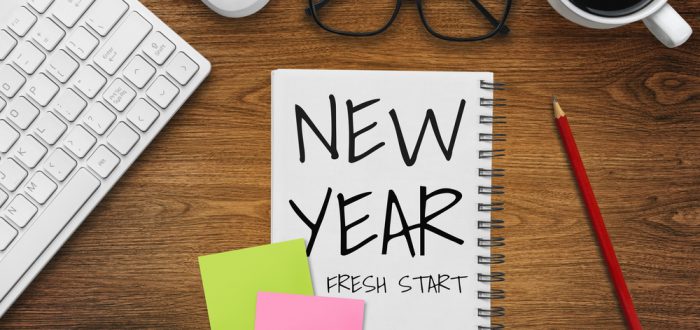When you’re thinking of New Year’s resolutions for 2020, hearing loss prevention may not seem important, but making your hearing health a priority can actually be beneficial to your long-term health overall. As a matter of fact, hearing has been linked to your sense of balance, your heart health and your cognitive function. So this year, try the following 5 hearing-related New Year’s resolutions and protect your hearing health:
1. Get Your Hearing Checked
Did you know that even though more than 30 million Americans experience some level of hearing loss, fewer than one-third of people with this condition have ever used hearing aids? A common misconception is that hearing loss affects the elderly when in fact, the majority of the people that need hearing aids are younger than the age of 65. If you’re above 50 years of age, the American Speech-Language-Hearing Association recommends having your hearing checked approximately every 3 years. So New Year’s resolution idea number one: make your hearing health a priority this year by scheduling an appointment to get your hearing checked.
2. Start Wearing Hearing Protection
If you work around loud machinery, attend concerts, even mow the lawn regularly, make a point of using earplugs or earmuffs this year. ASHA notes that any noise above 85 decibels can cause permanent hearing damage, and loud machinery, concerts, and more can all produce noises above this threshold. In fact, ASHA has gas lawn mowers and snow blowers listed at emitting approximately 106 decibels, well above a volume that’s safe to be exposed to for a long period of time. This is why hearing loss prevention is so important.
3. Buy Safer Headphones
Do you use headphones in loud environments? Do you increase the volume accordingly? If so, you might be causing damage to your hearing. According to MacWorld, the maximum volume on a pair of Apple stock earbud-style headphones is more than 100 decibels, and exposure to such volume will cause damage in just 15 minutes or less. In order to protect your hearing, it’s not only important to turn down the volume when listening to your music, but hearing care professionals often recommend investing in noise-canceling headphones that block unwanted noise, reducing the need to turn up the volume. Focus on protecting your hearing this year by purchasing headphones that are better for your ears. Make the investment in better headphones that will, ironically, protect your hearing.
4. Make Heart Health a Priority
Did you know that studies have linked heart health to hearing health? In fact, studies have proven that good circulation has an overall positive effect on one’s hearing. On the other hand, poor blood flow in the inner ear has been linked to hearing loss. Therefore, not only does taking care of your heart help protect your hearing, but a hearing assessment may also be able to pick up on cardiovascular abnormalities. Exercising regularly is a great resolution for anyone trying to get set for the New Year; this can benefit both your cardiovascular and auditory health.
5. Protect Your Ears
Are you an athlete? If so, make sure this year that your ears are protected when you go out and get physical. If you participate in winter sports such as skiing, snowboarding or ice hockey, wear warm earmuffs or a hat under your helmet to fight off infections. If you prefer water sports, try earplugs to avoid the development of hearing disorders such as swimmer’s ear.
Consult with the Hearing Experts at Kenwood Hearing Center
If you are concerned about hearing loss, for yourself or someone important to you, contact us today and schedule an appointment. Whether you want to learn more about how your hearing works, discuss your possible hearing loss, or learn about the benefits of hearing aids, we are here to help you!
